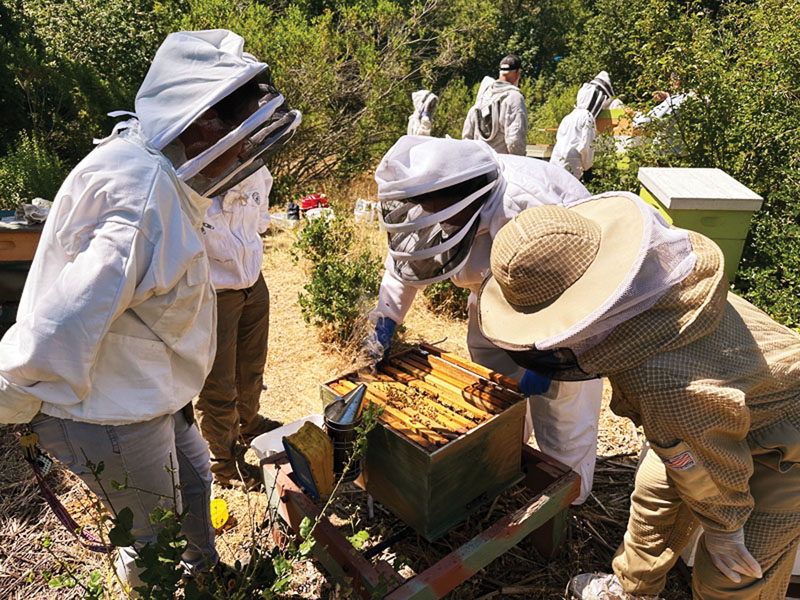Beekeepers abuzz over new Pollinator Protection Act

CONTRA COSTA COUNTY, CA (Nov. 20, 2023) — Local beekeepers are optimistic about California’s Pollinator Protection Act, aimed at safeguarding bees, birds and other garden visitors.
The legislation, which takes effect in 2025, bans the use of neonicotinoid pesticides in home and consumer gardens. Neonicotinoids are pesticides that seep into soil and pollen, killing bees, butterflies and birds.
Democratic Assemblymember Rebecca Bauer-Kahan of Orinda authored the bill, which Gov. Gavin Newsom signed in October. The ban does not apply to chemicals used in agricultural and commercial settings. State-certified professionals can still use them.
Donald Gerken of Diablo Bee Works says the bill is a step in the right direction. “It seems like a good, albeit small, start at reducing the level of neonicotinoids in our environment, the vastly more substantial use being in commercial agriculture.”
Recent development
Gerkan calls the use of neonicotinoids a fairly recent development and explains how the pesticides can harm pollinators like bees. “Rather than being applied to the surface of a protected plant, they actually exist within the plant itself.”
According to Gerken, there is a lot of evidence supporting the ban. “Researchers believe that this exposure results in sub-lethal doses, or worse, of pesticide being taken-up by pollinators, leading to colony stress in the case of honeybees, or even colony collapse.”
In other words, these chemicals directly impact the health of individual bees and their hives.
Jan Pinkerton Spieth of the Mount Diablo Beekeepers Association emphasizes why honeybees are so important: “The honeybee is responsible for pollinating one out of every three bites of food.”
One example clarifies the issue. “California’s almond crop provides 80% of the world’s almonds out of the Central Valley, and it’s 100% pollinated by honeybees.”
Groundwater concerns
Spieth echoes Gerken’s concerns. “The neonics stay in the soil. Water leaches down and moves into the groundwater, which is not good for us. But for honeybees, neonics are a neurotoxin, and they can kill bees.”
Neonicotinoids are also specifically bad for California’s native bumblebees.
“Although honeybees have a kind of ability to process the pollen, and to some degree slice out a little bit of the toxin, bumblebees feed it directly to the larvae,” Spieth said, noting that this can kill the larvae before they hatch.
Spieth says that she understands that gardeners have come to expect using pesticides and chemicals to make their gardens and homegrown fruit look “perfect,” but she believes avoiding chemicals and allowing for imperfections leads to a much healthier ecosystem.
She hopes that gardeners can learn to “nurture their plants in a way that’s balanced with nature, that they can do a nice job in their gardens but not use chemicals or things that we know are truly toxic.”

Vince Martellacci
Vince Martellacci is a somewhat new resident of Clayton who loves to spend time in the town center and in Concord. He represents musicians across the Bay Area in the media when he’s not writing. Contact him at vince@4amindiepublicity.com.
